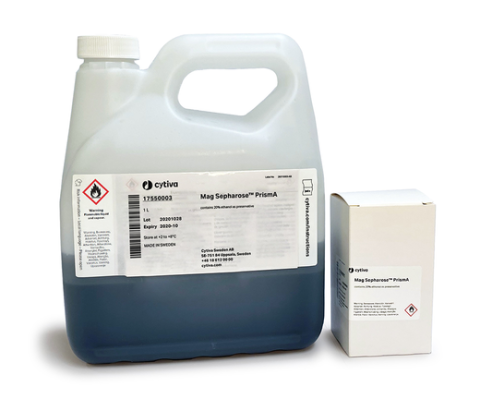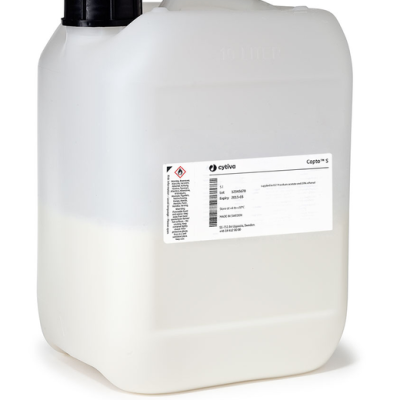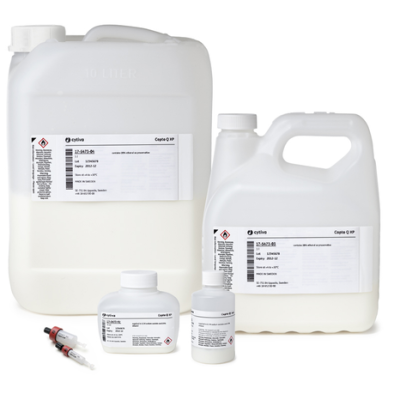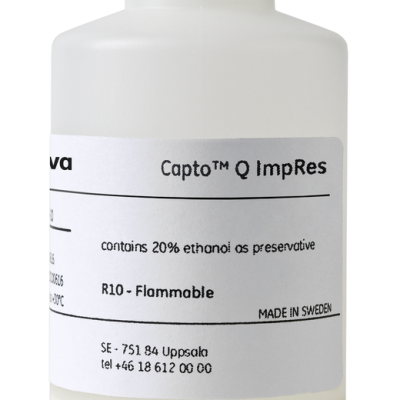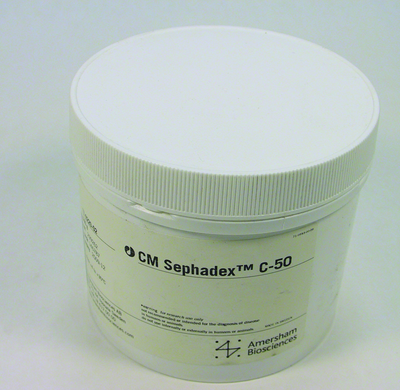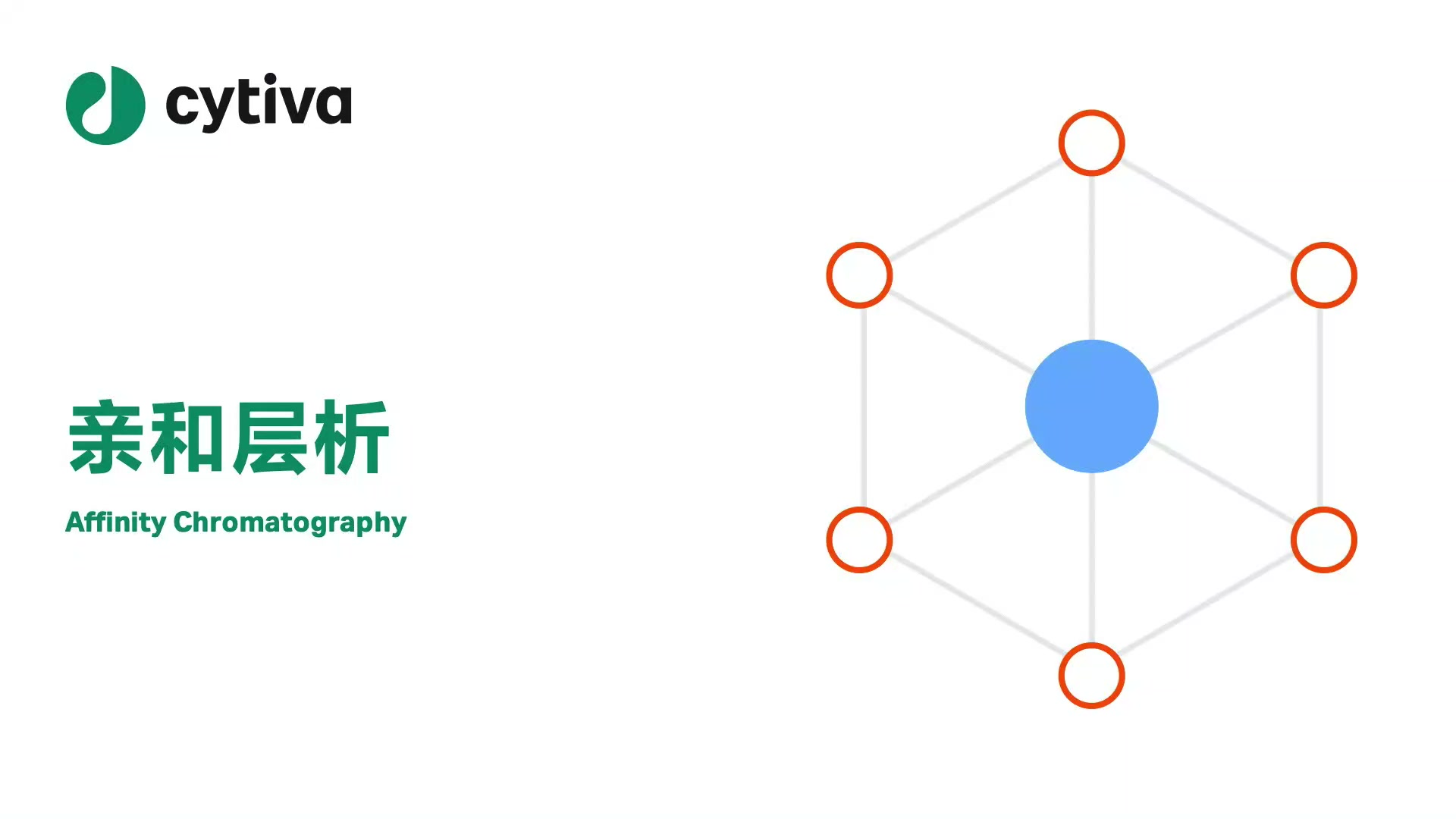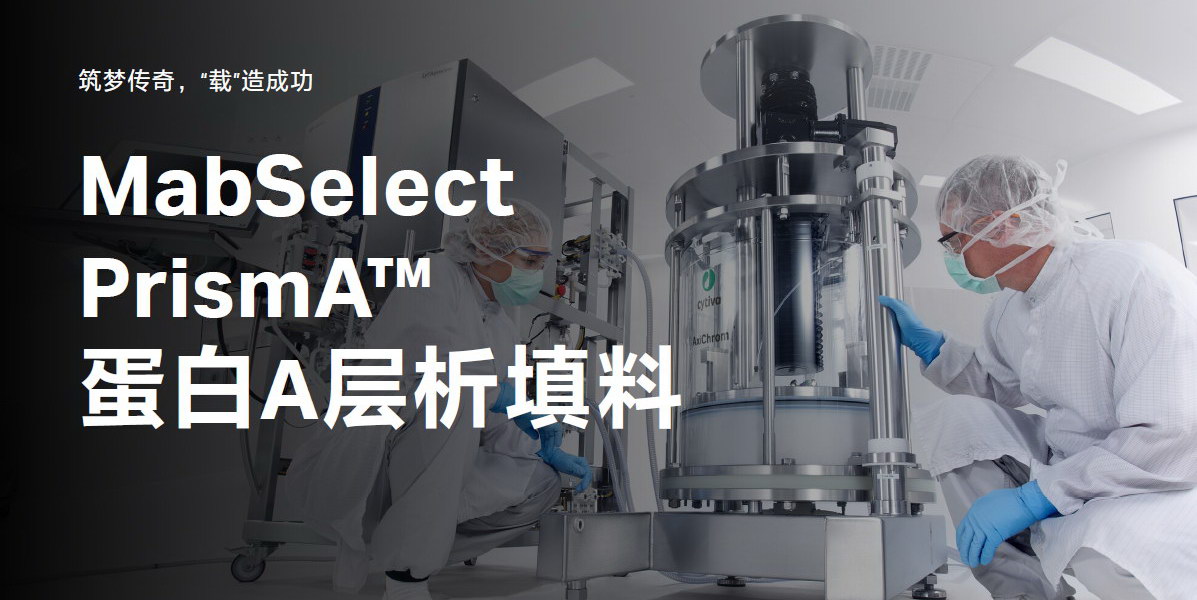Mag Sepharose™ PrismA magnetic bead resin
Mag Sepharose™ PrismA magnetic bead resin is designed to simplify enrichment of antibodies by immunoprecipitation.
产品详情
Mag Sepharose™ PrismA magnetic bead resin uses a genetically engineered protein A-derived ligand immobilized to Mag Sepharose™ beads for capture of target proteins followed by collection of the beads using a magnetic device.
- Can be used for high-throughput screening of antibody drug candidates in microwell plates and for purification of antibodies in a magnetic separator.
- Magnetic properties that reduce materials and workload for antibody screening in microwell plates.
- Capture of mAbs in up to 80 L of unfiltered feed eliminates clarification steps in antibody processes.
- Excellent alkaline stability enables efficient cleaning and sanitization using 0.5–1.0 M NaOH for improved process economy and robustness.
Principles of magnetic separation
The paramagnetic properties of the resin allow it to adhere to magnets for easy extraction of the beads from a solution or suspension. When combined with the protein A-derived PrismA ligand, the resin can capture high amounts of mAbs, which can then be washed and eluted by magnetic separation. Mag Sepharose™ PrismA resin can be applied directly to an unfiltered cell suspension for capture and elution of mAbs. It can also be used for automated screening of antibody drug candidates, in which the resin is moved across wells in a microwell plate, and the beads are extracted magnetically. This saves both time and material.

 收藏
收藏 询价
询价